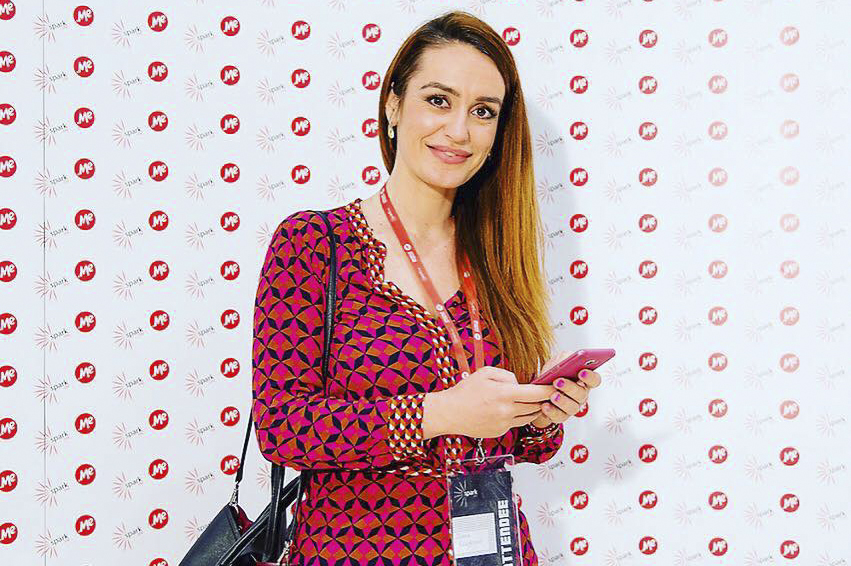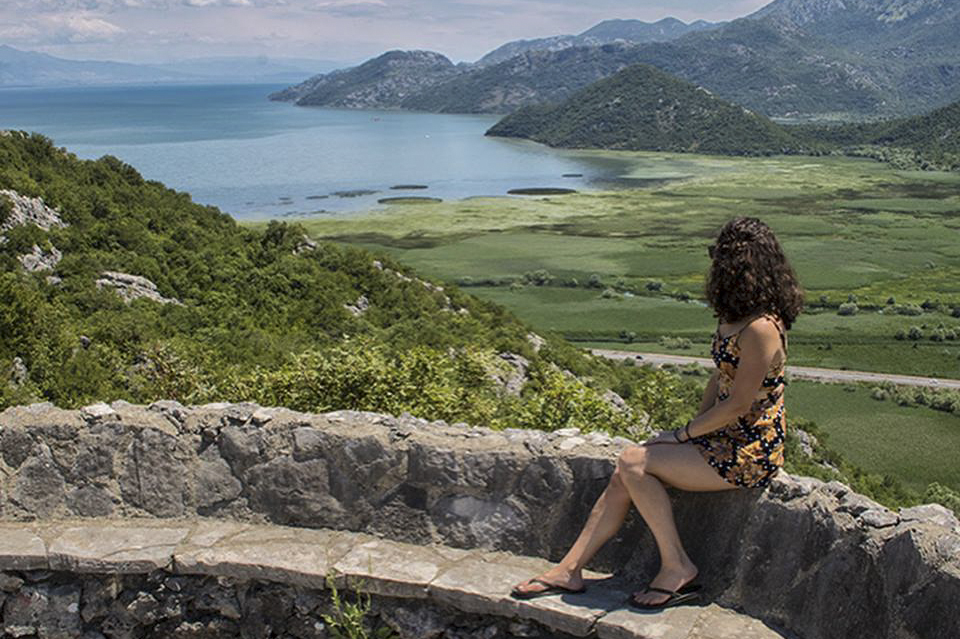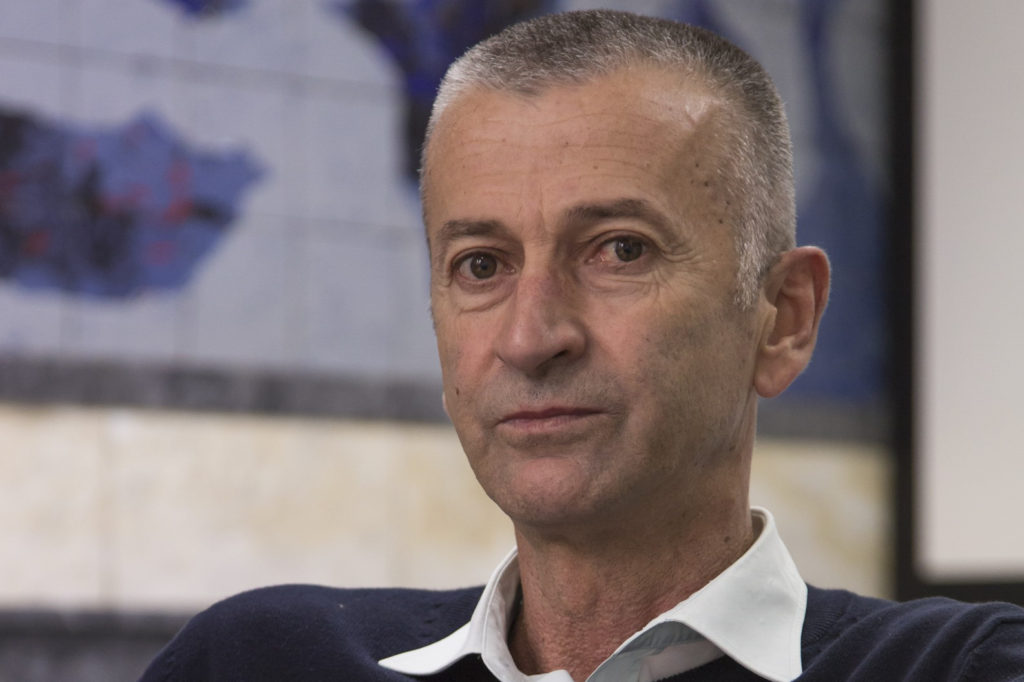Jelena Kaludjerovic needed just a few minutes to write her first blog. After 10 years of experience in public relations and marketing, on October 30, 2015, she opened up to the blogosphere on what motivates her and keeps her going in life. That is why she named her first blog ‘Passion and Love — my symbols of living.’
“I want to help people,” Jelena says, explaining the motivation behind her blog. “I want to make their days more beautiful and to use my own experiences, which I write about to be their motivation for doing useful stuff — organizing their time in the right manner, working on themselves, learning, improving themselves, travelling, staying at a good hotel. I especially want to point out the importance of performing physical activities.”
Jelena published dozens of blogs before becoming Montenegro’s official representative in the Coca Bloggers Network Adria project, which is aimed at promoting a socially responsible blogging culture regionally. She says that her participation in this project drew attention to her and her work, leading to many opportunities within the tourism sector.

Jelena Kaludjerovic started her blog in 2015 having worked for a decade in public relations and marketing. Photo courtesy of Jelena Kaludjerovic.
Her aim now is to make her blog cost effective. “I am now creating a strategy that will enable me to — besides cooperating on the basis of compensation — earn money for what I’m doing,” she says. “Generally speaking, people in Montenegro still haven’t got sufficient awareness of how a well-written blog can create a good image in public, the customer awareness of a certain product or service, which could then impact the sale itself. Let alone the small amount of awareness of paying for the efforts.” Jelena mentions that her colleagues around the globe earn between 100 to 10,000 euros a month.
Living a childhood dream
American professional blogger Nina Ragusi has been living off blogging for years. “To be honest, I didn’t have an idea that blogging could become a real job,” she says.
“When I went to Thailand in 2011 to teach English, I started running an electronic diary so that my friends and family would be up to date on what I was working on. All of a sudden I started receiving questions from strangers — on how they could live and work abroad. I started writing about it and transformed my writing into a profession, thanks to which I earn money today.”
In June, Nina visited Montenegro after receiving an invitation from the country’s National Tourism Organization, in order to promote the small state online. Over the course of seven days, she travelled to the Montenegrin seaside, the north of the country, and Lake Skadar. In addition to all her expenses, such as accommodation, food and transport, being covered, Nina also received honoraria for doing this.
“I’m lucky to professionally do what I also privately love,” she says. “From the personal point of view, I’m living my dream from when I was a child — I have always dreamed of travelling the world.”
However, a blogger’s life isn’t as easy at it may sound and Nina explains that it “demands a lot of work.”
“I’m aware that people think that bloggers are on their perpetual mobile vacations, but this is far from the truth,” she says. “Actually, I’m now working more than while I had a regular job in the States.”
A professional blogger needs to be dynamic as there is much more to it than simply sitting down and writing every now and then. “I’m constantly self-improving, researching every day, writing and responding to emails and messages from my followers, I’m studying photography, looking for the best offers for transportation and accommodation, I’m signing up to various ads, writing blogs, running my accounts on social networks…”

Nina Ragusi says she is living her childhood dream by traveling all over the world for her blog, but that while it is fun it isn’t always as easy as it sounds. Photo courtesy of Nina Ragusi.
Nowadays, a blog cannot survive without promotion on social networks, something that both Jelena and Nina are acutely aware of. The American blogger has over 50,000 followers from around the world on Instagram. She often asks them which destination she should visit on her next travels and says that lately Montenegro and Croatia have been recommended to her. She is convinced that her blog and posts on social networks will bring new tourists to these countries.
Although there are an infinite number of channels through which we can send our thoughts and share our attitudes in cyberspace today, the most popular is through social media. Montenegro is number one in the region when it comes to the number of Facebook accounts relative to size of population, with nearly 400,000 Montenegrins signed up.
Simultaneously, Instagram is today the fastest growing network in Montenegro with more than 100,000 profiles. One of them belongs to Ignjat Kotlaja, a Pljevlja resident who came to live in Podgorica after a period of time spent in Belgrade. His posts, live videos and Instagram stories are subscribed to by more than 35,000 people.
Ignat’s online presence though began on Twitter, where he has almost as many followers. “I started using Twitter in the wave that took over the Balkans some seven years ago,” he recalls. “I was abroad doing some business, and during my leisure time I wrote some kind of travelogue impression. This short format of 140 characters suited me, and this is how it all came to life.”
Thinking back to that time, he admits that he didn’t expect the influence that he would grow to have through these social networks.
Don Quixote online struggle
Unlike many Instagram profiles, Ignjat doesn’t use professional photos or filters, nor does he try to create an “apparent” reality, which we often see on social networks.
“I had this partial goal of raising awareness among those I know and those I’m not acquainted with around myself by using plain and understandable language and metaphors to speak about some social problems and standards which they are slaves to, and due to which they suffer, but they shouldn’t have to, because life isn’t that particular thing and it doesn’t depend on it,” he says. “However, slowly I’m quitting doing that, since it is Sisyphus work. Now all of this serves so that I can rest my brain and laugh at other people’s raciness, and often stupidity.”

Ignjat Kotlaja has more than 35,000 followers on Instagram and a similar number on Twitter. Photo courtesy of Ignat Kotlaja.
Even though he has developed a relaxing and non-goal oriented approach, Ignjat has cashed in his presence on social networks. He says that his earnings would be a lot bigger if he had more time to dedicate to it, or if he would be prepared to compromise and tap into corporate income streams more often.
“The main source of income on networks are permanent campaigns, promotions and actions of big companies and brands from Serbia,” he says. “I came across these when friends working in their PR and design teams asked me if I wanted to get involved. Later on I started working a bit on their campaigns, which is why a circle has been created which isn’t easy to leave.”
Omer Sarkic’s blogging story started out completely differently. Omer writes political blogs on the PCNEN portal, one of the first portals in Montenegro. The road to his first blog started from commenting anonymously on articles under the pseudonym ‘Zipp.’ The editor liked his angle of looking at everyday Montenegrin life, and invited him to write his thoughts down in a blog:
“In the beginning I thought I could influence and change the mindset of citizens who read my articles, that I could at least influence the processes that happen just a little. One of the basic goals was to oppose the revision and ‘painting’ of history that is performed by most political elites in my country and the region, by variously motivated historians, intellectuals, journalists, and frustrated nationalists,” Zipp says. “I think that it was an unsuccessful, Don Quixote attempt, but at least a trace of him will remain.”

Omer Sarkic initially set out to change people’s perspectives with his political blogs but admits he now writes now as a form of catharsis. Photo courtesy of Omer Sarkic.
However, he isn’t planning to stop his writing, even though people have to wait for months for his blogs to be published. “I will quit if I run out of inspiration,” he says. “I’m afraid it won’t run out, but I’d like for it to run out. For 30 years now we have been at the beginning of political processes, things aren’t moving forward at all. There is the same constant economic degradation, the same government, the same opposition. In this kind of a situation, I will probably keep on venting by writing blogs, so as not to go mad, if I haven’t already.”
More and more people in Montenegro, but also in the Balkans, are using social networks as the way to interact with the rest of the world. They are opening up different topics, from tourism to politics to entertainment, while trying to give a different picture of the region that was long known largely for conflicts and disharmony.K
Feature image: Atdhe Mulla / K2.0.





